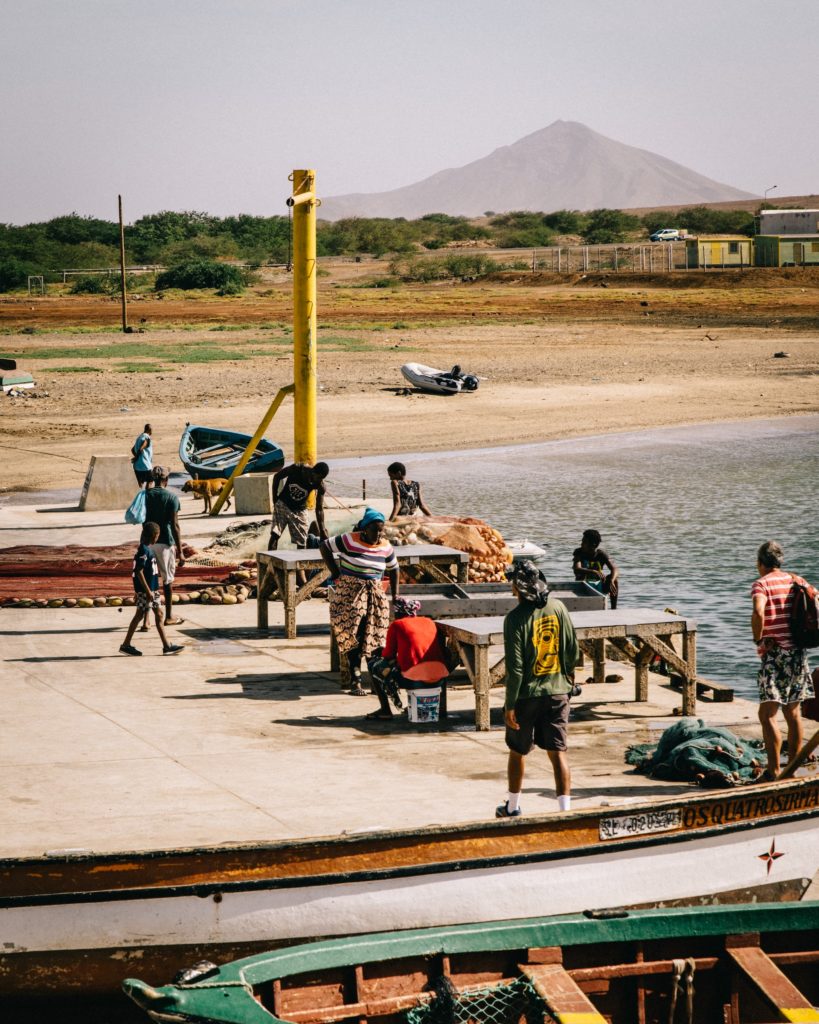Cabo Verde is a volcanic archipelago developing nation in West Africa with a complex ecosystem and geography due to the islands’ geomorphology, climate, and human demand for natural resources. About 79000ha, or 19.6% of the country’s total land area, is used for agriculture. The foundation of agriculture is mostly family subsistence farming. There are two types of production systems:
- Rainfed systems and
- Irrigated systems.
Maize, legumes, vegetables, coconut, sugar cane, coffee, and fruits are among the major crops produced. Although just a small part (5.9%) of the country’s agricultural land is fitted for irrigation, Cabo Verde has an irrigation potential of 3,109ha.
However, with investments in water mobilization and gravity irrigation systems, drip irrigation has quickly grown in popularity.
The majority of the Cabo Verdean diet still consists of cereals, even though there are now more proteins and foods high in micronutrients in the diets. Cabo Verde is one of the small island developing states (SIDS) with one of the lowest per-capita GHG emissions. Agriculture has several difficulties, including;
- Rising population and food demand
- Fewer chances for marketing agricultural products
- Climate change and variability, and
- Food waste.
The country’s natural vulnerabilities, together with the social and economic effects of those vulnerabilities, are very likely to be worsened by climate-related disruptions in the coming decades, according to climate models run from 2008 to 2012.

Market opportunities
The Cabo Verdean government has continued to concentrate on several crucial sectors for private sector investment and collaboration despite the difficulties brought on by the COVID-19 pandemic. The goal of the government is to switch to 50% renewable energy by 2030. This industry has already drawn the interest of American companies. The maritime economy offers business opportunities, particularly in the context of the special exclusive economic zone in So Vicente. This includes port management, bunkering, ship repair, fisheries, and other maritime industries. Cabo Verde welcomed more than 818,000 visitors in 2019, and the industry is expected to reach 2019 levels by 2023. The sector is showing strong signs of recovery in 2022.
During the global pandemic, information and communication technology companies saw benefits, and the future of this sector in Cabo Verde is bright. For investments in these important industries, the Cabo Verdean government provides tax breaks and other incentives. The pandemic has slowed the government’s plans to restructure and privatize state-owned enterprises including port and airport administration, pharmaceutical production and distribution, and a ship repair facility, among others. It is expected to proceed, giving firms chances for export and investment.
Market entry
Regarding market introduction, no single guideline exists. It can be quite beneficial to have a Cabo Verdean business partner or manager who is fluent in both Portuguese and Cabo Verdean Creole (“Kriolu”), especially in companies that target the local populace. Dual English and Portuguese language proficiency would be helpful for industries that cater to tourists and foreigners. To comprehend the laws and procedures of the nation, consulting a local attorney is advised.
Multi-service marketing firms are available to offer assistance to businesses. Compared to organizations of a comparable nature in the United States, these marketing firms operate on a far smaller scale. However, when establishing commercial partnerships with time and language restrictions, their contacts and skills might lead to faster responses.
Foreign investors in Cabo Verde are treated the same as locals in terms of taxes, licensing, registration, and access to foreign currency. The Cabo Verde trade and investment promotion agency accepted a record $1.8 billion in planned investment projects in 2021, indicating great investor confidence in the nation’s post-pandemic recovery. By 2021, tourism continued to receive the majority of foreign investment in Cabo Verde.







